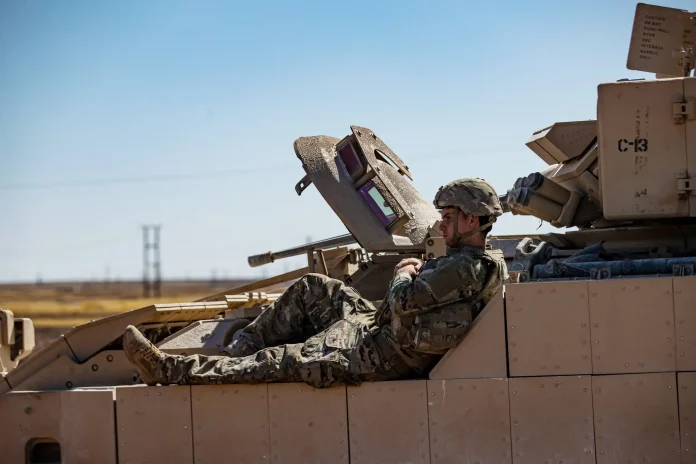Turkey, together with its allies, increases the military presence at the border with Syria, which can indicate preparation for a large -scale invasion. According to officials, along the Syrian-Turkish border, the number of special forces, militias and artillery forces increased significantly. Particular attention is focused on the area of Kobani, which has Kurdish majority and is located on the northern border of Syria.
The deployment of troops began after the fall of Bashar Assad in early December. This situation is reminiscent of the events of 2019, when Turkey made a military invasion of northeast Syria.
Ilham Ahmed, a representative of the Civil Administration of Syrian Kurds, warned the likelihood of a Turkish operation in an appeal to the newly elected President Donald Trump. He urged Trump to put pressure on Turkish President Recep Taiip Erdogan to give up the invasion. Ahmed stressed that surgery can lead to a mass movement of more than 200,000 Kurdish civilians in Koban and threaten Christian communities in the region.
"The purpose of Turkey is to establish the actual control of our land before you enter the post, forcing you to interact with them as the rulers of our territory," Ahmed wrote in a letter to Trump.
The exacerbation of the situation on the border has set the Syrian democratic forces led by Kurds in a vulnerable position. The SDS is a key ally of the United States in the fight against Islamic State militants in the northeast of Syria.
In parallel, there were unsuccessful negotiations on ceasefire between Syrian Kurds and Turkey's supported rebels in Koban. Negotiations over the US ended without reaching an agreement.
Last week, US Secretary of State, Anthony Blinken, visited Turkey to discuss the future of Syria with Erdogan. Washington tries to obtain assurances of collapse of Turkish operations against Kurdish forces, which Ankara considers an extension of the forbidden working Party of Kurdistan (RPC).
The situation is complicated by domestic political changes in the United States. On the eve of the white house's changes, the forces headed by Kurds risk staying without proper support, which can lead to significant humanitarian and security consequences in the region.


